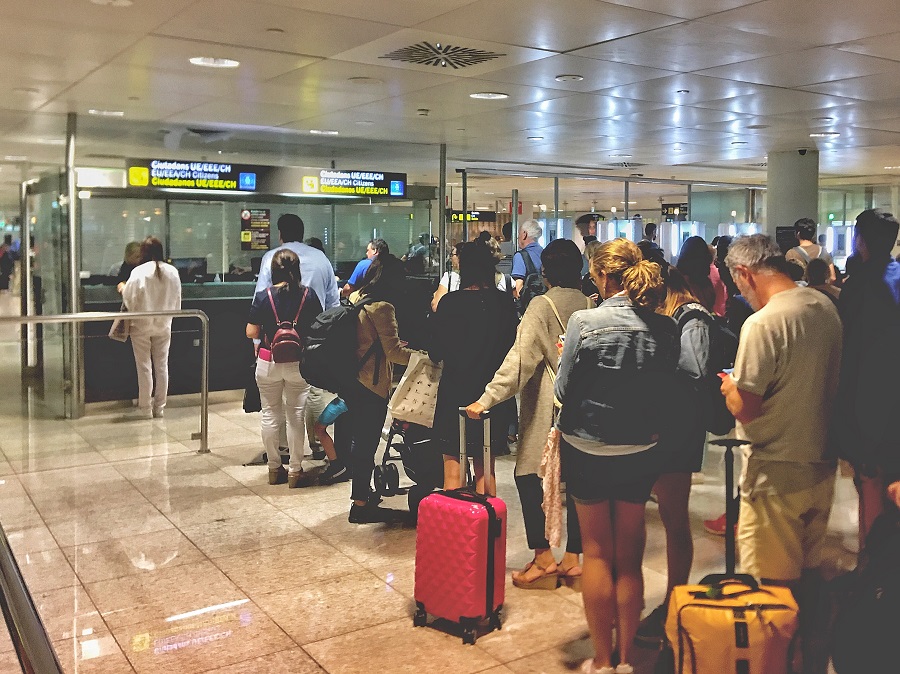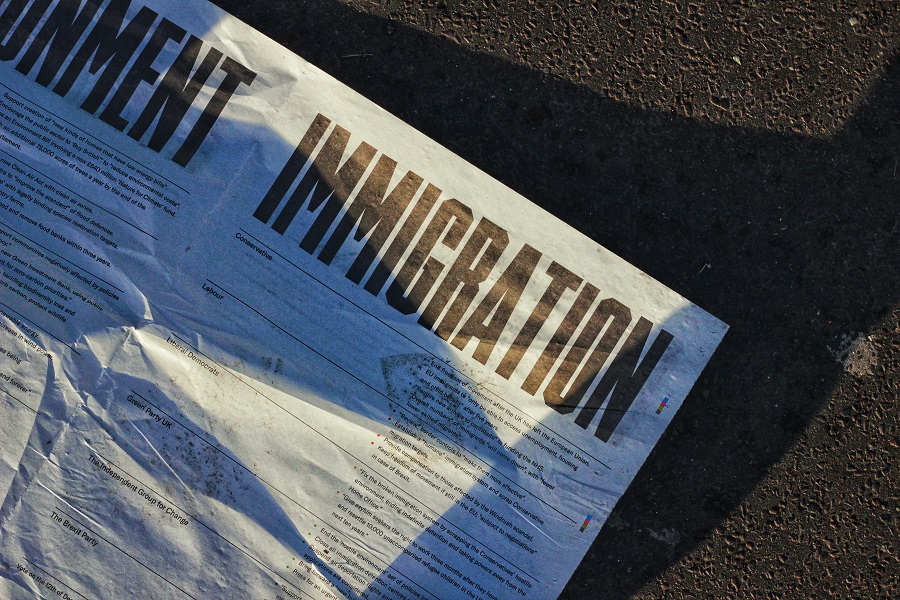No news from IRCC - when will invitations for Express Entry be sent?
It's uncertain if IRCC will resume invitations to FSWP candidates in 2021
Express Entry is one of the main ways of welcoming economic class immigrants to Canada. To apply for the Express Entry program, you must be eligible for at least one of the three programs:
Before COVID-19, Federal Skilled Worker Program candidates were the main invitees for permanent residence since they are more likely to have higher CRS scores than those in other programs. The CEC and Federal Skilled Trades Program (FSTP) usually get fewer CRS points, since candidates are younger former international students, don't have a lot of work experience and don't need to get their foreign education assessed.
In a recent meeting between the IRCC and associations representing Canadian immigration lawyers, IRCC revealed that it hasn't yet made the decision on when it will resume issuing Express Entry invitations to all candidates. According to IRCC, this issue has been waitlisted until the new federal cabinet settles in. When that happens, the IRCC can present proposals to the new immigration minister, Sean Fraser, for approval.
According to data provided to CIC News by IRCC, there were about 153,000 FSWP candidates in the Express Entry pool on June 29, 2021. The pool size does grow in a way since previous and new candidates upload their profiles in search of a chance to receive a PR invitation. However, their profiles do expire after a year because the language test and educational competency assessments have expiration periods. This presents candidates to new problems: additional costs.
Before the pandemic, IRCC usually considered candidates from all three programs at once. However, once Canada's travel restrictions were set in motion, IRCC opted for a program-specific draw that only considered PNP and CEC candidates, with a "they are already in the country" logic. Last year, IRCC held all-program draws between September and December - this year, however, there is still no FSWP draw in sight.
Should you enter the Express Entry pool now?
The biggest downside to entering the pool now as an FSWP candidate is the possibility your language test will expire and you will need to spend additional time and money. However, being in the pool can give you a chance to receive a provincial nomination invitation which could give you 600 additional CRS points. Entering the pool does give you a chance to receive a job offer, which can give you another 200 points. That being said, it's still important to realize that there are still no particular dates set for the IRCC to resume inviting FSWP candidates.
Employment rate high among Immigrants
McNaughton wants to double the number of immigrants allowed under OINP
With the unemployment rate falling for the fifth consecutive month, Canada added 31, 000 new jobs to the economy last month. Down to 6.7 per cent in October, the unemployment rate was the lowest it has been in the last 20 months. But there is still a long way to go to reach the pre-pandemic rate of 5.6 per cent in February last year.
While it appears the economy is headed in the right direction, some experts are saying ongoing labour shortages are slowing down Canada's economic recovery. According to Nathan Janzen, senior economist at RBC, strong growth industries, like technical jobs, make it seem like there aren't enough workers to fill the positions in hard-hit industries.
On the other hand, not a lot of workers came back to work in retail, food services and manufacturing after they've been laid off because of the pandemic. This suggests that not all industries have fully recovered. This could be good news for recent immigrants, meaning they may not face a lot of difficulties in their job-hunt.
High employment rate for very recent immigrants
The number of immigrants to Canada has increased in recent months, with Canada admitting 267,000 new permanent residents. Numbers say that very recent immigrants don't struggle with finding jobs and the employment rate among this group remains high.
"Very recent immigrants" are those who have lived in Canada for five years or less, according to Statistics Canada. Compared to 2019, there were more recent immigrants this October, and they were more likely to be employed.
The employment rate among this group of immigrants was 71 per cent, which is almost 6 per cent higher than October 2019. On the other hand, the employment rate among Immigrants living in Canada for more than five years has gone down by 1 percent.
However, many immigrants still struggle with finding work, mainly because most of the employers ask for some Canadian work experience, especially in their professions. That particular issue is yet to be resolved in some provinces. Ontario is currently working on proposing a legislation that would eliminate the work experience requirement for Professional Licensing and would also make English-language testing requirements more standardized and fast-track application processing.
Ontario is also calling on the federal government to double the number of immigrants allowed under the Ontario Immigrant Nominee Program from 9,000 to 18,000. The program allows foreign skilled workers and international students to apply to the Ontario government to be nominated for permanent residency in the province. Labour Minister Monte McNaughton says that doubling the number of immigrants will help tackle the current job shortage.
A recent study by the Conference Board of Canada found that economic immigration programs tend to bring in highly educated and skilled immigrants to Canada, but the pandemic has shown that essential workers are also needed in the labour market.
"Canada's economic immigration system has a strong focus on highly educated immigrants, but this does not always correspond with the labour demand in essential sectors," said the study.
Canada welcomed 45,000 new immigrants in September
Canada Reported the Highest Number of Newcomers Since 1993
45,000 new immigrants arrived to Canada in September, the IRCC confirmed to CIC News. Prior to the COVID-19 pandemic, Canada welcomed about 30,000 new immigrants per month. Last year, that number significantly decreased with only 4,000
new immigrants welcomed in April 2020.
Landing figures began to recover for the rest of last year, but not fast enough to reach the yearly target of 341,000 new immigrants - instead only 184,000 new immigrants arrived, which is a 54% success rate.
To catch up and expand the country's population, the federal government decided to increase the number of newcomers for 2021 and accept 401,000 new permanent residents. Until now, 267,000 immigrants had arrived - which means that, in order to achieve the ultimate goal, there are about 45,000 fully processed applications needed every month by the end of the year.
In February, Canada held the largest Express Entry draw ever by inviting more than 27,000 candidates to apply for permanent residency. The IRCC also launched six temporary streams in May that allow up to 90,000 existing residents to request permanent residency. If those applications are processed in time, Canada could have its goal achieved.
What's important to understand is that a landing occurs when a foreign national's legal status is officially converted to Permanent Residency. It can happen for both temporary residents currently living in Canada and for an individual about to enter Canada. IRCC is currently focusing on its existing residents because those outsides of the country are more likely to be impacted by current travel restrictions, delaying Canada's goal of accepting 401,000 new immigrants.
Sean Fraser appointed as New Immigration Minister
Sean Fraser Replaces Marco Mendicino After Cabinet Reshuffling
Sean Fraser is a 37-year-old former lawyer from Nova Scotia who has been re-elected as a Member of Parliament and replaces Marco Mendicino as Canada’s newly appointed Immigration Minister.
Mendicino, who previously served as Immigration Minister between 2019 and 2021, is now the Minister of Public Safety.
Fraser represents the “Central Nova”. Before entering politics, he practiced commercial litigation and international dispute resolution.
Trudeau's Liberals won a minority government in September and Parliament reconvenes on November 22. Last year, the Liberal government made the announcement that Canada will accept over 400,000 newcomers per year, with the goal of providing greater support to the economy and post-pandemic economic recovery.
What To Expect For Canada When It Comes To Immigration
During the September 2021 election campaign, the Liberals made many immigration promises. These include ending citizenship fees, which currently cost $725, and reforming the Express Entry Program so that temporary foreign workers and international students may have more immigration pathways and shorter processing times.
The new Immigration Levels Plan will be unveiled by March 2022 and the Liberals will have several immigration issues to work on to fulfill their mandate – application backlogs that grew during the pandemic as an obvious example. IRCC will likely also focus on reforming the Express Entry and the Parents and Grandparents Program, launching the Municipal Nominee Program, and waiving the aforementioned citizenship fees.
The new Immigration Levels Plan 2022-2024” shouldn't have any surprises and will likely continue to focus on helping Canada achieve its goal to welcome over 400,000 new immigrants annually. The 2022 budget should be published around the same time and may highlight the new government’s major priorities on immigration. As for now, IRCC will continue to invite immigration candidates through the Express Entry Program, the Provincial Nominee Program, and Quebec's provincial immigration programs.
Arghavan Gerami Nominated For 25 Most Influential Lawyers
Gerami Law PC is proud to announce that its founder and managing lawyer, Ms. Arghavan Gerami, has been nominated for Canadian Lawyer’s Top 25 Most Influential Lawyers of 2021 in the Human Rights, Advocacy and Criminal category.
Since opening her firm in 2011, Ms. Gerami has litigated complex immigration and refugee cases, taken on time-sensitive stay of removal motions, and appeared before all divisions of the Immigration and Refugee Board (IRB). She has represented individuals before the Superior Court of Justice, as well as the Federal Court and the Federal Court of Appeal. Additionally, she has experience and expertise in criminal law, administrative law, constitutional law, international law, and human rights. During the COVID-19 pandemic, she advocated for the modernization of the Federal Court filing process and for the implementation of virtual hearings for IRB tribunals.
In addition to her advocacy work, Ms. Gerami is a co-chair of the Canadian Bar Association (CBA) Immigration Section’s Anti-Racism Committee, a representative of the CBA Immigration Section’s IRB Consultative Committee, and a member of the CBA/Ontario Bar Association Women Lawyers Forum and Equality Liaison Group. She has also acted as a working group member for the United Nations High Commissioner for Refugees and is a member of the Refugee Lawyers Association.
Ms. Gerami is passionate about mentoring and providing support to new lawyers, articling students, law students, and legal interns. She often participates as a guest speaker at various engagements and publishes regularly on legal topics. She has volunteered her time to act as co-chair of the Federal Court Immigration and Refugee Law Moot, as well as to provide guest lectures at the University of Ottawa Faculty of Law. She also volunteers her time in the community as a member of the Iranian Canadian Legal Professionals, REACH Canada, Immigrant Women Services Ottawa, and the County of Carleton Law Association.
To vote for Canadian Lawyer’s Top 25 Most Influential Lawyers of 2021, click here. Voting closes on June 25, 2021.





